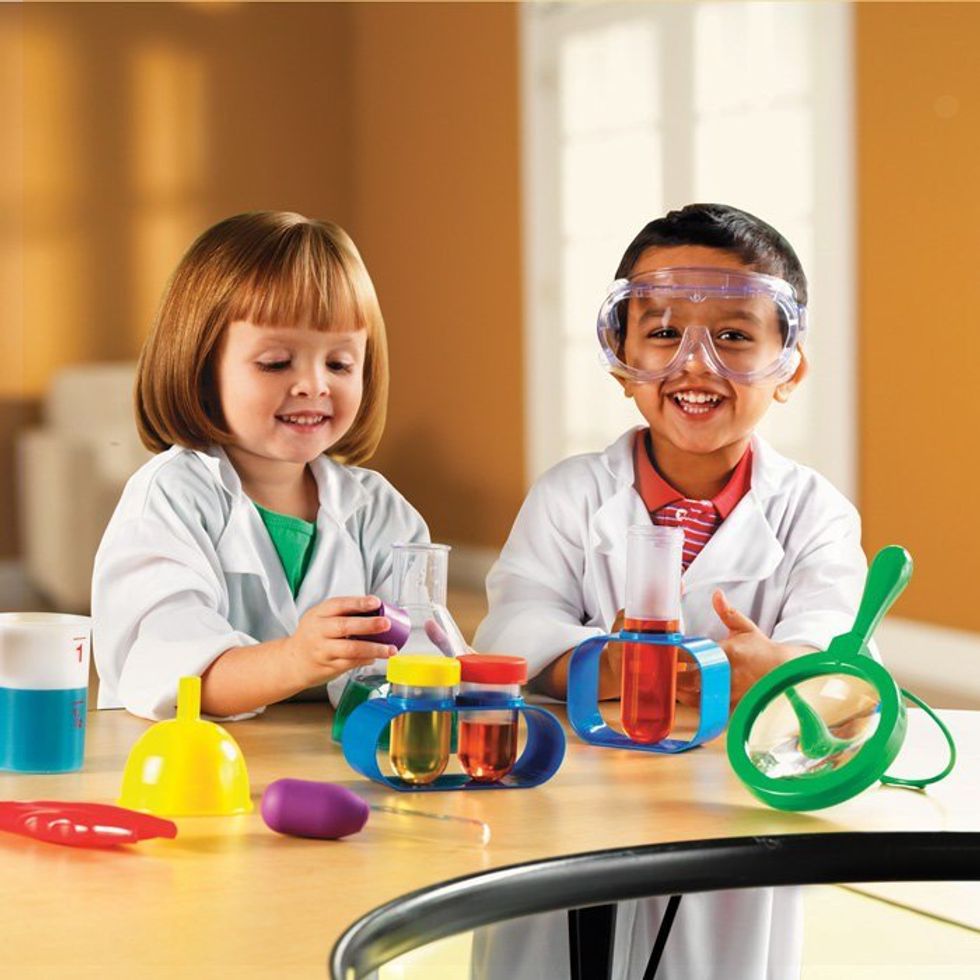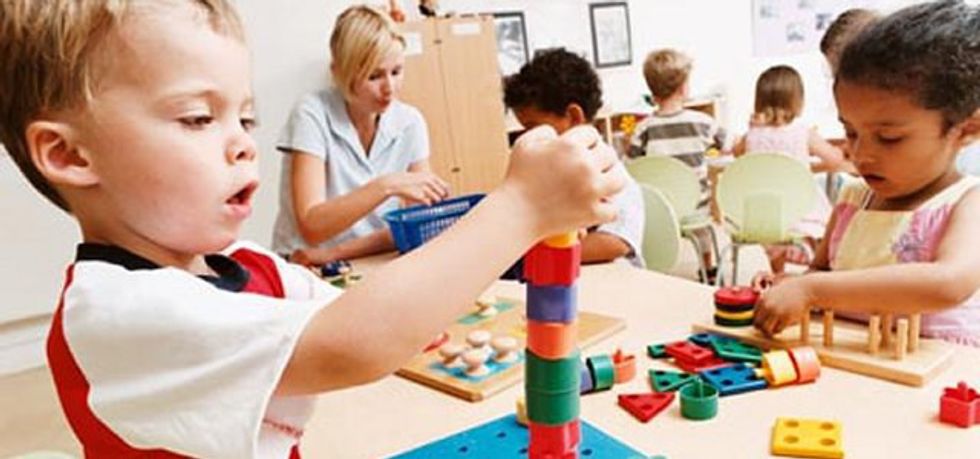This summer, I have been volunteering at the ECHO Science Center in Burlington, Vermont with their education team: running interactive table demonstrations, engaging with guests, and helping with the sea tank. Since starting work at ECHO, I have thought about learning and discovery, especially science education, as it happens outside the classroom. When we think of learning, we think of school. But with so much of our lives occur outside the classroom, it is important to recognize learning in a much broader sense, especially in regard to small children. Over the next couple of weeks, I will be writing a series of articles exploring science education.
This week, I will be focusing on early childhood science education. In looking at the goals of both teachers and science museums, for pre-kindergarten children, science is not as much about physics, chemistry, and biology, as it is about cultivating curiosity and developing skills to help with thinking and discovery. Talking with Ms. Kimberly Ludwin, a Universal Pre-Kindergarten teacher from Long Island, New York, pre-K education is focused on developing a child’s skills for social and academic engagement. Ms. Ludwin states she works for a unique program centered on authentic learning, “the idea that students should learn in ways that are developmentally appropriate, and based in the world around them.” Lessons are set up where children explore and attempt problem solving, and “[t]eachers are there to guide the children and help lead the discussion, not tell them what is right and what is wrong.” While there is five to ten minute lesson each day, the majority of the day is spent with hands-on activities. As Ms. Ludwin states:
Children learn through doing. Hands on activities allow students to learn through their own bodies and actions how thing work. … Maybe I could have just told them those things, but would they have remembered it? Probably not. … The longer I can keep [my students] genuinely engaged, the longer they learn that learning comes with a joy all of its own, and that’s a mentality that will last their whole lives.
In February of 2016, ECHO opened Champ Lane, an “incredible exhibit, created especially for ages 0-6, engages kids in science play or learning about science using open-ended play scenarios.” Similar to Ms. Ludwin’s classroom, the exhibit works off the idea that kids learn best through doing. The various sections of the exhibit, from the tree house to the make-believe grocery store, allow students to develop and refine their spatial awareness, balance skills, and basic mathematics such as sorting and counting. With the many visitors to the center, kids work on social skills such as communication and sharing, while activities such as Pint Sized Science and pretend animal feedings get children using scientific tools for the first times. Pre-K education works by letting young children have fun and play, while understanding that through their actions they are laying the important foundation for scientific knowledge.
In looking at education, it is important to ask what educators actually hope to achieve and expect from their time with students. In Ms. Ludwin’s case:
My goal for each child varies, because each child is different. I want them to learn in a developmentally appropriate way. I want them to learn to notice patterns around them, because that is an incredibly important skill. I want them to become critical thinkers, and to be able to answer ‘why’ when asked for their thoughts during a discussion. I want them to be able to self-regulate their feelings and to be able to solve problems among themselves using words, and I want them to show respect to the teachers and other children around them. These are the goals that I work towards with each child. There are a lot of other academic goals, but I know that if I can help each child with the goals I just listed, the academic side will come.
Similarly, Champ Lane is based around the standards CLIPS: Communication, Logical Thinking, Inquiry, Persistence, and Scientific Identity. More specifically, Champ Lane hopes to develop:
Communication: Sharing explanations of the world.
Logical Thinking: Recognizing cause-and-effect relationships.
Inquiry: Asking question, making predictions, and testing theories.
Persistence: Pursuing challenges and keeping focus during activities. Learning to ignore distraction and cope with failure.
Science Identity: Seeing yourself as someone who does science and having confidence in your own skills.
These goals have important effects in a child’s on going quest for knowledge. Patterns surround us, and by having good pattern recognition, a child lays the foundation for understanding laws and behaviors taught in math and sciences, such as addition rules or the layout of the periodic table; while logical thinking allows kids to understand the relationship between actions and find patterns. Social skills such as regulating feelings, communication, and respect for others all allow for cooperation. While society loves stories of progress and innovation by a lone genius such as Albert Einstein, Gregor Mendel, or Steve Jobs, real discovery and scientific work is done by groups of people all working to solve a problem or understand some concept, sharing their knowledge, and using what others have learned to build upon their results. In learning how to work and communicate effectively with other people, there is never too young an age to start. It goes without stating that critical thinking is one of the most important skills a person can develop. With critical thinking, a child grows to look deeply at the world, poise multifaceted, reflective, and complex question, and gives them the tools to answer those questions, or at least start looking for answers. The goals of Champ Lane and Ms. Ludwin’s classroom help guide play necessary to a child’s development. Overtime, the skills developed in these areas can help future scientists turn their curiosity from playtime to exploration and experimentation.
Regardless of their future field of study, pre-kindergarten science education helps a child develop the skills useful for academic, vocational, and domestic life.
Thank you again to Ms. Kimberly Ludwin and the ECHO Science Center for help in writing this article. For more information on ECHO and Champ Lane, please visit http://www.echovermont.org/pre-school.






















